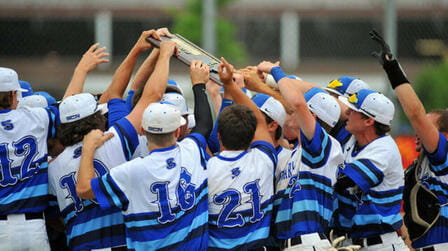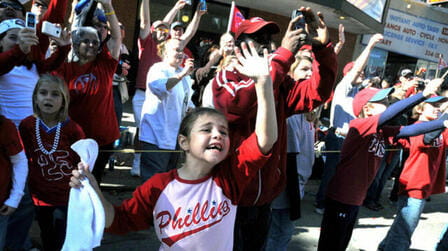The Oakland Athletics have long been considered one of the loneliest teams in Major League Baseball, playing in an outdated stadium with dwindling fan support. This year, the Athletics' attendance woes have reached a new low, spotlighting the franchise's uncertain future.
Oakland's aging Coliseum, home to both the A's and the NFL's Raiders until 2020, was built in 1966 and is the only MLB stadium currently in use that was built before the 1970s. With Mount Davis looming over the outfield and its cavernous, concrete concourses, the Coliseum lacks the charm and amenities of newer MLB venues. Fans have pleaded for years for a replacement.
The A's proposed move to a waterfront ballpark at Howard Terminal has stalled, leaving the team's status in Oakland up in the air. Attendance has plunged as a result, averaging a mere 8,421 fans per game this season - last in MLB by a wide margin. For comparison, the MLB average attendance in 2019 was 28,198 fans per game.
On May 2nd, just 2,488 fans attended the A's game against the Tampa Bay Rays, the lowest attendance in over 40 years. "I heard a pin drop," joked Rays outfielder Brett Phillips. "Does that count?"
While the Rays also suffer from poor attendance, they have a plan in place for a new Tampa ballpark. The A's future remains uncertain, and fans appear to have given up hope.
Why Have A's Fans Given Up?
Several factors have driven fans away from the Oakland Coliseum and led them to lose faith in the A's commitment to staying in Oakland.
Constant Turnover of Star Players
The A's have made trading away popular players before free agency a science under GM Billy Beane's "Moneyball" philosophy. While this has kept the small-budget A's competitive, fans grow tired of seeing their favorite stars like Josh Donaldson, Yoenis Cespedes, and Sonny Gray shipped out of town.
This offseason's trades of Matt Olson, Matt Chapman, Chris Bassitt, and Sean Manaea have been the last straw for many fans. Season ticket holder Jorge Lopez said, "I just want to soak it all up before they leave." Fans feel the A's are just biding time before moving cities.
Uncertainty About Howard Terminal Ballpark
The A's have proposed moving to a new 34,000 seat ballpark on the Oakland waterfront at Howard Terminal. However, the project faces major obstacles and requires city and state approvals and funding.
Constant delays and opposition from shipping companies at the port have left fans skeptical it will ever happen. The city council vote on the project's financing plan is the next make-or-break milestone.
Flirtation With Las Vegas
At the same time as the Howard Terminal project, A's president Dave Kaval has been vocal about the team's interest in Las Vegas, spending money to explore relocation there.
This "two-city tango" angers Oakland fans who feel the A's aren't committed to staying in Oakland. Seeing the Raiders leave for Vegas in 2020 only adds to fans' suspicion.
Lack of Memories and Nostalgia
Unlike classic ballparks like Wrigley Field or Fenway Park, the Coliseum provides little in the way of nostalgia or memories for A's fans. Opened in 1966, it lacks retro charm and has none of the historical significance of the two oldest MLB stadiums.
With the Raiders now gone as well, the Coliseum feels cavernous and empty. The Warriors' move to San Francisco has also left the area devoid of sports energy.
How Low Can Attendance Go?
In a stadium that holds nearly 57,000 fans, the A's have drawn embarrassingly small crowds in 2022. Attendance bottomed out on May 2nd with just 2,488 attendees - the lowest turnout for an A's game since 1979.
The visual of a nearly empty Coliseum damages the A's brand and MLB's image. But can attendance fall even lower as fan apathy grows?
The A's small but loyal fan base will only shrink if the team is perceived to be intentionally putting an inferior product on the field to suppress attendance and increase leverage for relocation.
Some fans already accuse the A's of orchestrating a "Major League" style scenario where the team wants fans to stay away to justify a move.
Trading away stars, increasing ticket prices, and making no improvements to the Coliseum all fuel speculation. How much lower will attendance go? The A's small but loyal fans may soon be priced out entirely.
What Will Become of the A's in Oakland?
After sharing the Coliseum with two departed teams in the Raiders and Warriors, the A's face an uncertain future in Oakland:
Possibility
1: Howard Terminal Ballpark
The A's prefer building a new 34,000 seat ballpark at the Port of Oakland's Howard Terminal site near downtown. A's president Dave Kaval says a new stadium is essential to compete with the Giants and stop trading away players.
However, the project faces significant challenges before it can become reality. It requires city council and port approvals, as well as $855 million in public funding. The city council vote on the financial plan is the next milestone.
If the project falls through, Kaval says the A's are "done" in Oakland and will immediately pursue Vegas.
2: Relocate to Las Vegas
If Howard Terminal stalls, relocation to Las Vegas emerges as a real option. The A's are already spending hundreds of thousands researching Vegas, and they could quickly pivot efforts there.
Like Howard Terminal, the Vegas option depends on city and county votes. The A's hope to build a $1 billion stadium in the Vegas area.
3: Stay in Oakland Coliseum
Barring a new stadium, the A's could simply continue playing indefinitely in the aging Coliseum they've called home since 1968.
However, Kaval argues the Coliseum is now a "substandard product" that can't compete with other MLB venues, especially the Giants' Oracle Park.
Remaining in the Coliseum long-term would likely mean low attendance and revenue for the A's, along with a limited payroll and inability to retain star players.
What Will the A's Decision Mean for Oakland?
The future of the A's goes beyond baseball - it will significantly shape Oakland's economy and identity.
Jobs and Development
Mayor Libby Schaaf strongly supports the Howard Terminal project for the estimated $12 billion in associated development, including restaurants, shops, housing, hotels, and parks. This would create thousands of jobs and revitalize Oakland.
If the A's leave, the city loses out on huge economic benefits and activity around a new ballpark. Vegas would reap these rewards instead.
Identity and Pride
Losing the A's would be a psychological blow to Oakland's identity and sense of community. They are the city's last remaining pro sports team after the departures of the Raiders and Warriors.
Several generations of Oaklanders grew up rooting for the Swingin' A's dynasty of the 70s. Letting the A's leave would sever one of Oakland's last links to past glory days.
Increased Housing Burden
With the A's staying, Oakland can require the team to provide affordable housing as part of the Howard Terminal development, helping ease the city's housing affordability issues.
If the A's leave, the city loses leverage to extract community benefits from the baseball club. The housing burden on taxpayers would increase.
Conclusion
The Oakland A's declining attendance spotlights bigger issues - the team's uncertain future and what it means for Oakland. Will the A's get a new waterfront ballpark or head to Las Vegas? A's fans may be few, but they're loyal, and losing the team would leave an emotional void.
Yet the A's decision involves more than just baseball. Jobs, economic activity, housing, pride - Oakland's future direction hangs in the balance. After 54 years, the A's remain intrinsically tied to Oakland's identity. Where they play next will shape the city for generations.












